On the frontlines of marine technology: Vice President Bi-khim Hsiao visits NSYSU's underwater innovations
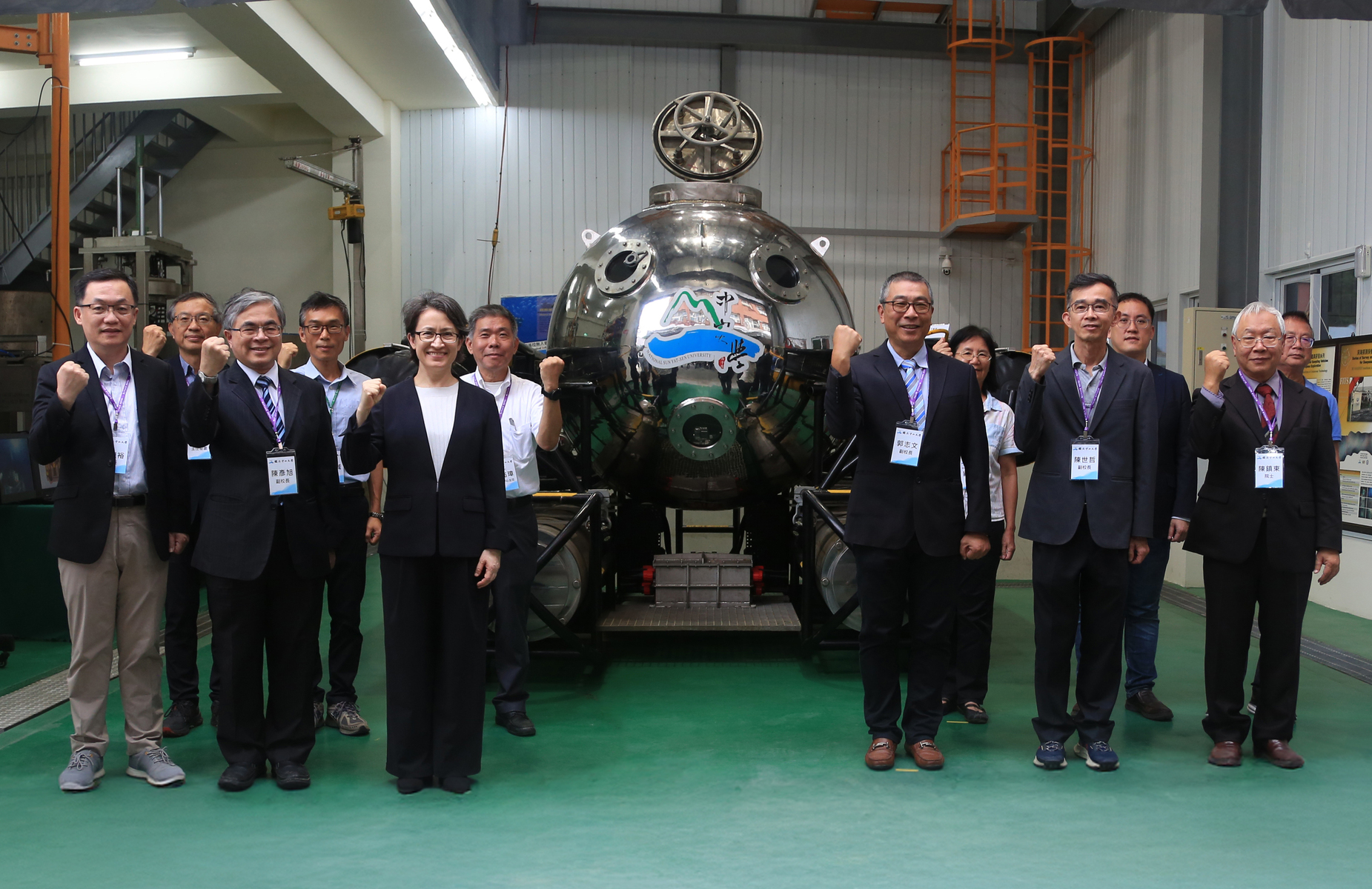
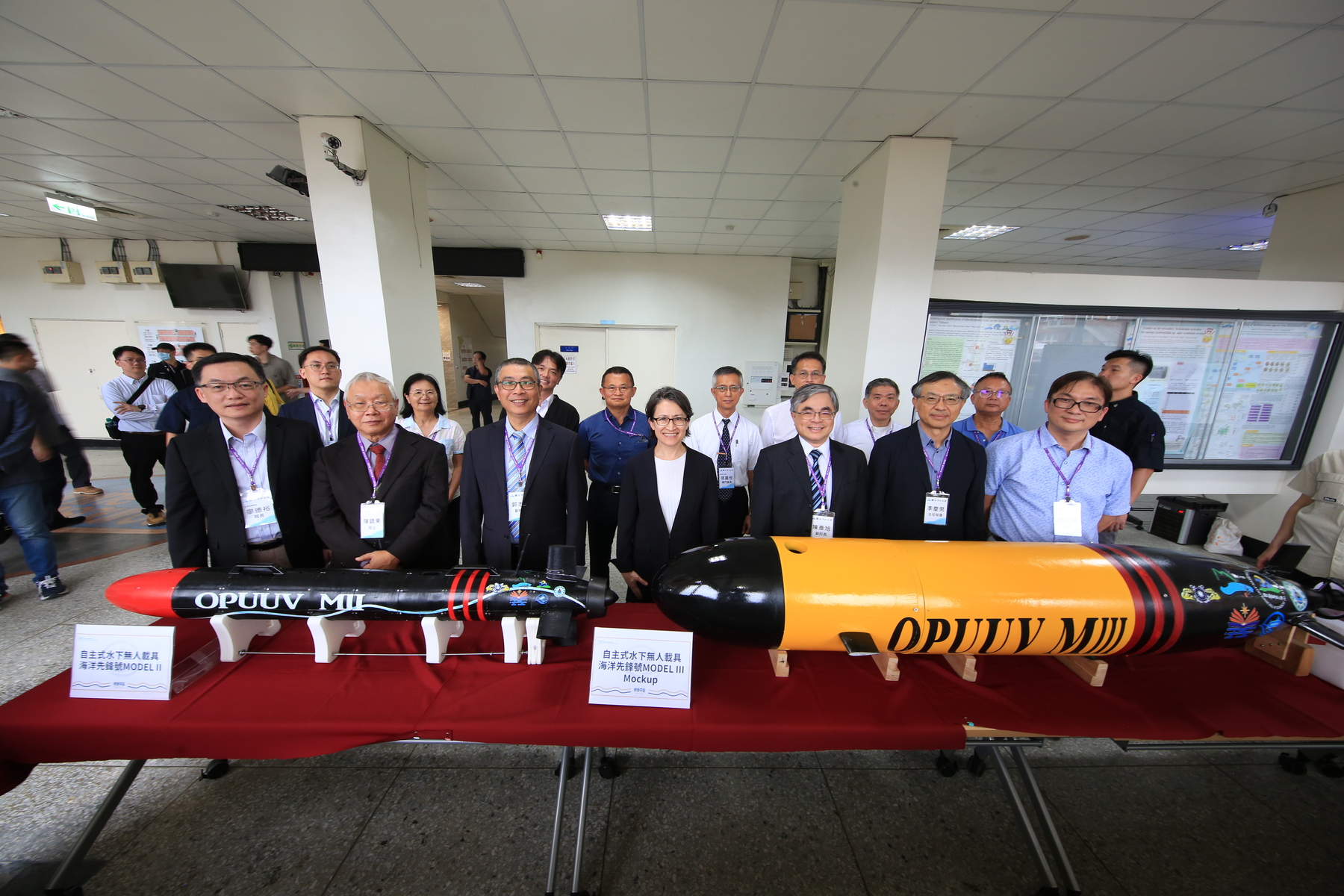
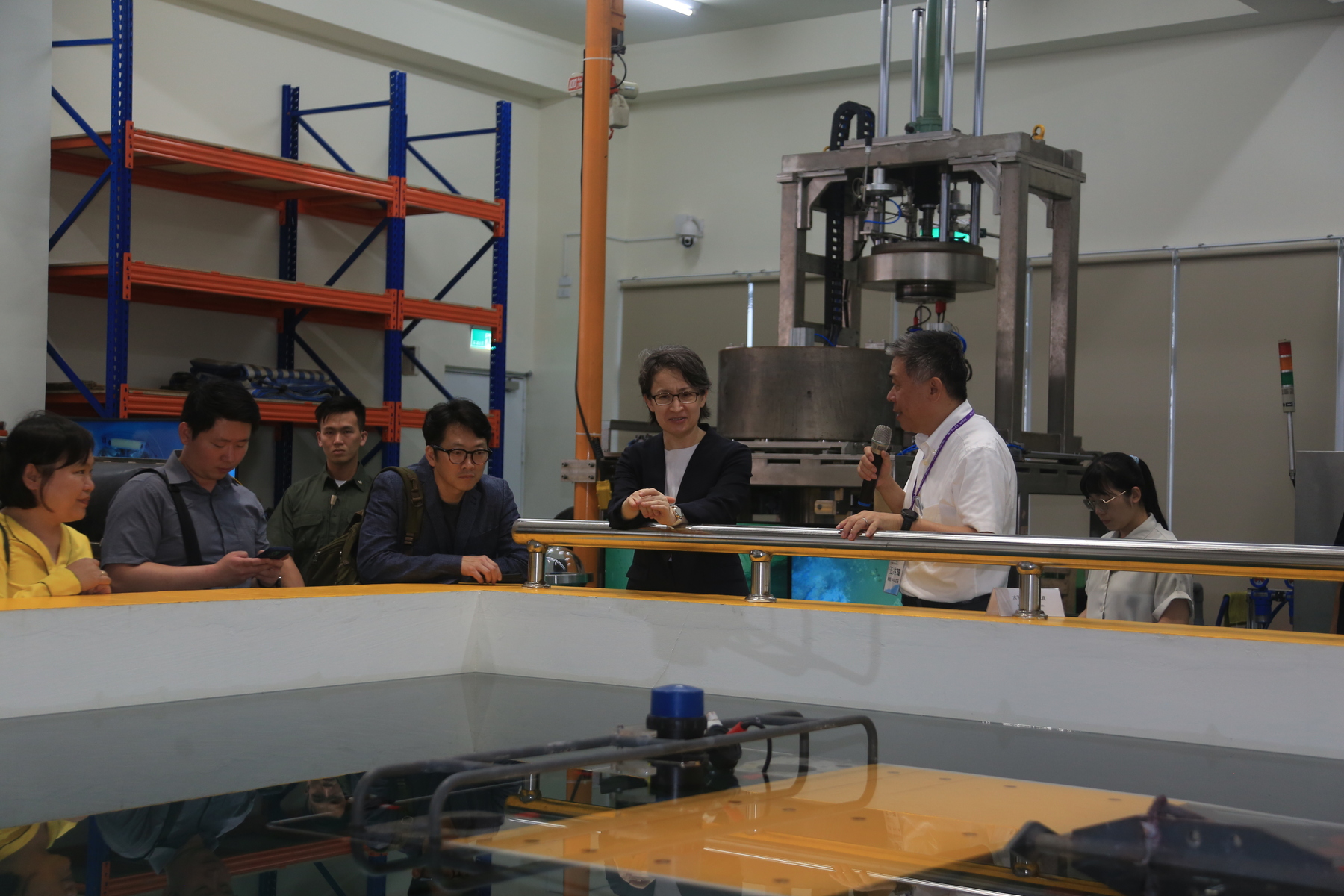
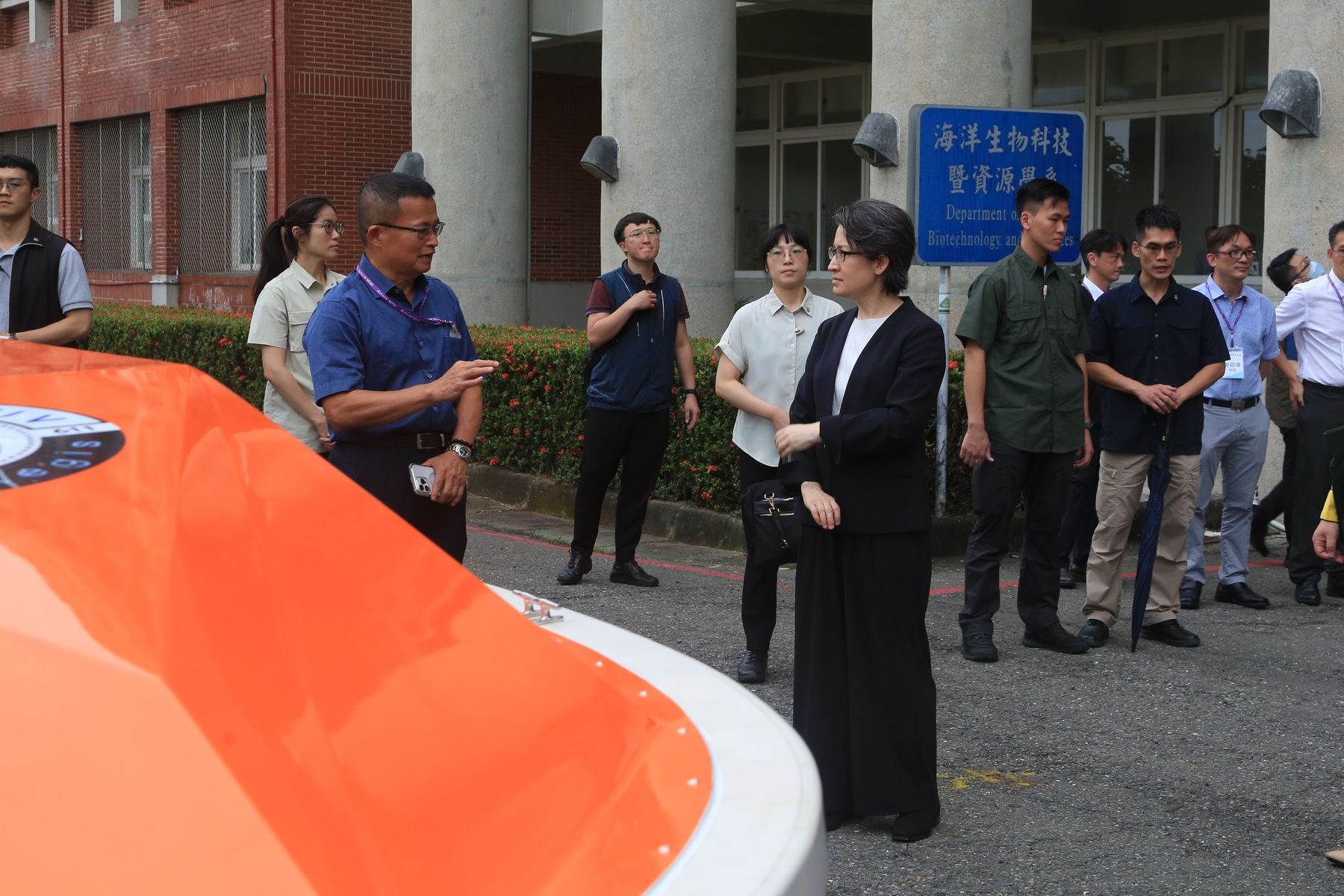
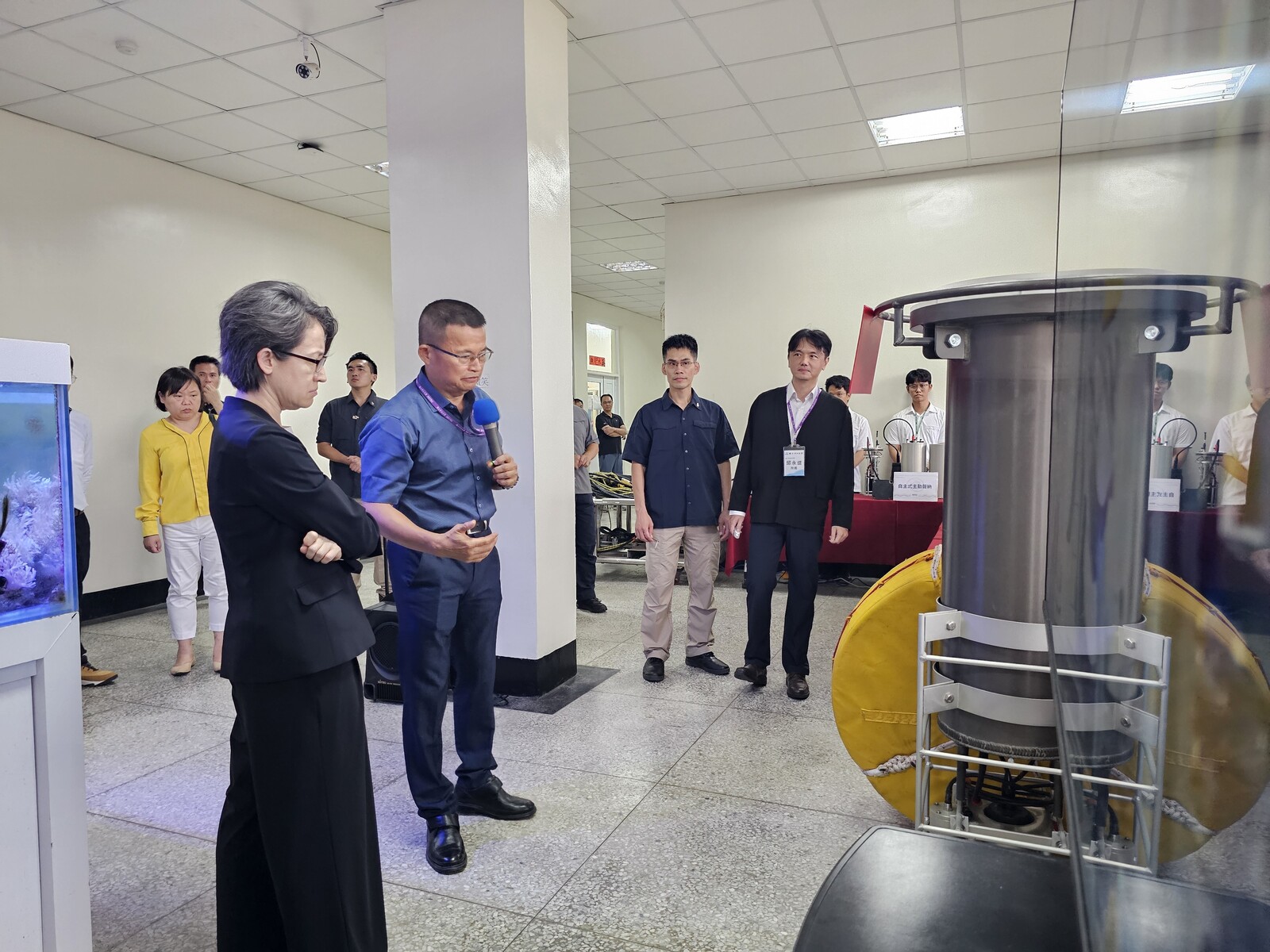
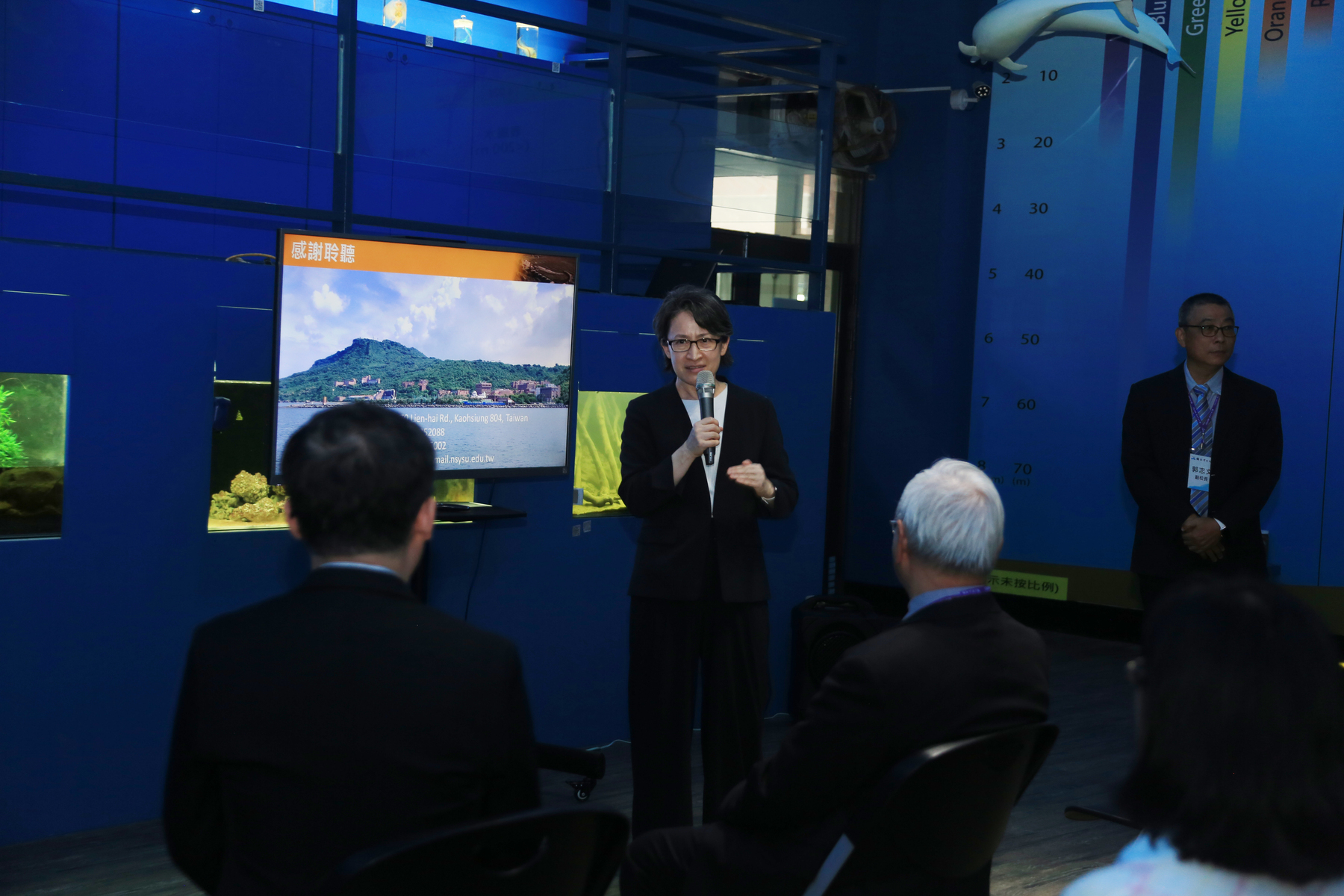
2025-09-24
As global marine technology rapidly advances, Vice President Bi-khim Hsiao visited Kaohsiung to inspect the College of Marine Sciences at National Sun Yat-sen University (NSYSU), reviewing the research and development achievements of the Academia Research Center of Underwater Vehicles. The demonstrations ranged from domestically developed research submersibles to smart unmanned vessels and AI applications for autonomous vehicles, showcasing Taiwan's strong capabilities and breakthroughs in independent marine technology development.
NSYSU has long been dedicated to advancing marine technology, achieving remarkable progress in recent years in exploring what is often called the "inner space" of the oceans. In collaboration with the Taiwan Ocean Research Institute of the National Institutes of Applied Research, CSBC Corporation, Jong Shyn Shipbuilding, and the National Defense University, NSYSU developed Taiwan's first two-seater research submersible prototype. After more than ten open-sea trials, the team is now upgrading to a second-generation semi-transparent submersible, supported by constructing a deep-sea simulation chamber. This chamber not only serves as a crucial facility for pressure testing but has also become a key proving ground for academia before moving to sea trials.
According to NSYSU, to enhance Taiwan's capacity for independent underwater vehicle development, the university established the cross-institutional "Academia Research Center of Underwater Vehicles (ARCUV)" in 2021 under the guidance of the National Science and Technology Council (NSTC). Pooling resources from partner universities, the center has advanced frontier technologies in sonar, navigation, AI recognition, audiovisual communication, underwater charging, and coordinated control between surface and subsurface vehicles. These efforts have successfully developed multiple autonomous and remotely operated unmanned vehicles and sensor systems with real-world application and operational value.
During her visit, Vice President Hsiao observed the demonstrations firsthand and praised NSYSU's breakthroughs in autonomous surface vessels, underwater unmanned vehicles, and sensor networking systems. She emphasized that these core technologies not only hold promise for applications in marine conservation, fisheries, and underwater exploration but also have significant potential for defense applications, strengthening Taiwan's maritime security and technological resilience.
Vice President Hsiao also expressed admiration for NSYSU's beautiful seaside campus, noting that the university's research in marine sciences provides an essential academic foundation for Taiwan's ocean exploration. She remarked that while her past focus in underwater technology was primarily related to national defense, witnessing NSYSU's development of both manned and unmanned submersibles entirely through independent innovation was deeply impressive. Beyond procurement, she emphasized that introducing and adapting foreign technologies to strengthen Taiwan's own capabilities and ensure stability in the Taiwan Strait is a priority for both herself and President Lai Ching-te.
Aligned with Taiwan's long-term "Nation of the Ocean" vision and the government's strategy of "applying technology to all trades and professions," NSYSU will continue advancing underwater technologies in fields such as audiovisual recognition, secure sonar communications, sound source positioning, vehicle group control, rescue systems, and inertial navigation. The goal is to build a fully independent domestic underwater technology system and apply these achievements to shipbuilding, fisheries, aquaculture, underwater exploration, and marine defense. Through these efforts, NSYSU seeks to promote technological independence, strengthen industrial resilience, and contribute to Taiwan's path toward becoming a sustainable, smart ocean nation.
As global marine technology rapidly advances, Vice President Bi-khim Hsiao visited Kaohsiung to inspect the College of Marine Sciences at National Sun Yat-sen University (NSYSU), reviewing the research and development achievements of the Academia Research Center of Underwater Vehicles. The demonstrations ranged from domestically developed research submersibles to smart unmanned vessels and AI applications for autonomous vehicles, showcasing Taiwan's strong capabilities and breakthroughs in independent marine technology development.
NSYSU has long been dedicated to advancing marine technology, achieving remarkable progress in recent years in exploring what is often called the "inner space" of the oceans. In collaboration with the Taiwan Ocean Research Institute of the National Institutes of Applied Research, CSBC Corporation, Jong Shyn Shipbuilding, and the National Defense University, NSYSU developed Taiwan's first two-seater research submersible prototype. After more than ten open-sea trials, the team is now upgrading to a second-generation semi-transparent submersible, supported by constructing a deep-sea simulation chamber. This chamber not only serves as a crucial facility for pressure testing but has also become a key proving ground for academia before moving to sea trials.
According to NSYSU, to enhance Taiwan's capacity for independent underwater vehicle development, the university established the cross-institutional "Academia Research Center of Underwater Vehicles (ARCUV)" in 2021 under the guidance of the National Science and Technology Council (NSTC). Pooling resources from partner universities, the center has advanced frontier technologies in sonar, navigation, AI recognition, audiovisual communication, underwater charging, and coordinated control between surface and subsurface vehicles. These efforts have successfully developed multiple autonomous and remotely operated unmanned vehicles and sensor systems with real-world application and operational value.
During her visit, Vice President Hsiao observed the demonstrations firsthand and praised NSYSU's breakthroughs in autonomous surface vessels, underwater unmanned vehicles, and sensor networking systems. She emphasized that these core technologies not only hold promise for applications in marine conservation, fisheries, and underwater exploration but also have significant potential for defense applications, strengthening Taiwan's maritime security and technological resilience.
Vice President Hsiao also expressed admiration for NSYSU's beautiful seaside campus, noting that the university's research in marine sciences provides an essential academic foundation for Taiwan's ocean exploration. She remarked that while her past focus in underwater technology was primarily related to national defense, witnessing NSYSU's development of both manned and unmanned submersibles entirely through independent innovation was deeply impressive. Beyond procurement, she emphasized that introducing and adapting foreign technologies to strengthen Taiwan's own capabilities and ensure stability in the Taiwan Strait is a priority for both herself and President Lai Ching-te.
Aligned with Taiwan's long-term "Nation of the Ocean" vision and the government's strategy of "applying technology to all trades and professions," NSYSU will continue advancing underwater technologies in fields such as audiovisual recognition, secure sonar communications, sound source positioning, vehicle group control, rescue systems, and inertial navigation. The goal is to build a fully independent domestic underwater technology system and apply these achievements to shipbuilding, fisheries, aquaculture, underwater exploration, and marine defense. Through these efforts, NSYSU seeks to promote technological independence, strengthen industrial resilience, and contribute to Taiwan's path toward becoming a sustainable, smart ocean nation.
Click Num:
Share
